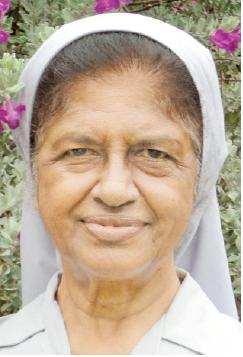
As the country mourns the deaths of over 250 people from last Sunday’s terrorist attacks, varied communities and organisations have pledged to support survivors. Much physical support was extended to families of the dead and to survivors.
Emotional or psychological support is an area where Sri Lankans have culturally overlooked for decades. However, it came to the fore after the devastating Boxing Day Tsunami in 2003. It is encouraging to note that organisations and people from all walks of life had pledged to provide emotional support to those who have been affected from the Easter Sunday tragedy.
 The Sri Lanka College of Psychiatrists (SLCP) issuing a media release stated its readiness to provide psychological first-aid, the first line of emotional support for those who are affected by a disaster. “Psychological first-aid is considered a humane, supportive response in a time of crisis to a fellow human being who is suffering and requires support. It includes providing effective care and support including safety,” it stated and invited those who may need intense support not to “hesitate to approach a psychiatric professional.”
The Sri Lanka College of Psychiatrists (SLCP) issuing a media release stated its readiness to provide psychological first-aid, the first line of emotional support for those who are affected by a disaster. “Psychological first-aid is considered a humane, supportive response in a time of crisis to a fellow human being who is suffering and requires support. It includes providing effective care and support including safety,” it stated and invited those who may need intense support not to “hesitate to approach a psychiatric professional.”
The National Hospital in Colombo and the District Hospitals are equipped to provide psychological support. While the National Institute of Mental Health is open for anyone to contact and receive appropriate help and guidance, the hotline 1926 is open 24 hours, it stated.
The Community Crisis Response Team (CCRT) Sri Lanka has also pledged to help those needing emotional/psychological support. “If anyone is feeling threatened or unsafe due to the current crisis in Sri Lanka the CCRT-LK is there to support you,” it tweeted providing three telephone numbers for contact. It encouraged emergency responders to be aware of secondary traumatic stress and provided tips for self-care.
Psychotherapist Nivendra Uduman also tweeted on the important but generally neglected subject of how to communicate with children in distress.
The Sunday Observer met Sr. Janet Nethisinghe of the Franciscan order, a prominent psychologist and psychotherapist with over 40 years of experience, to find out how disasters affect people emotionally and what others could do to support those who are in distress.
Sudden death is poles apart from an ordinary death and the deaths on Easter Sunday are far removed from those that happened from any disaster in the country, Sr. Nethisinghe said. “Take for example, the 2003 Boxing Day Tsunami. It was a natural disaster, which no one could do anything about. People know that. However, this is totally different. This is a very brutal way to die. Moreover, there are other people involved; the person who carried out the attack and other invisible hands. Therefore, the emotions are very different. It generates a lot of anger which takes a long time to let go,” she said.
This anger is exacerbated by the sensationalised and insensitive statements that the public has been seeing and hearing through the media in the past few days, said Sr. Nethisinghe. “Our politicians have to be more sensitive to the emotions and the pain of our people. the other day when the Prime Minister was talking some were haggling him hooting like a group of thugs. It just showed that they don’t have any concern for people beyond their own personal agendas, Very sad indeed!” she said.
It is a great shock and an extremely difficult situation. People are still under the shock of missing their loved ones. It will take some time for them to come to realise and accept their loss. It takes time.
The wounds are still fresh and it is not yet time for counselling and therapy, said Sr. Nethisinghe.“We are different from each other. All are not affected the same way. Some of us find inner resilience and strength to face the situation; some others would meet the challenge and face life with the support of those around them.
However, some others may even become suicidal, so we have to be alert.” she said. It is normal for anyone to carry the grief around for four to six weeks, not being able to perform the normal functions of his or her life.
However, if the situation does not change after about eight weeks, then professional support needs to be provided. People are eager to help.There are many groups going about providing support.
However, where psychological support is concerned it needs to be a coordinated effort, which provides genuine caring, otherwise it would become harassing and more damaging for those affected, she said.
She called upon all who interact with the bereaved families and survivors to respect their rights and to be ethical.
***
Guidelines to follow in providing support for those who are affected by disaster
- Respect the person/s
- Be genuinely caring
- Ask how the person/s could be helped (they will let you know if they need help)
- Do not force the person/s to do anything that they don’t want to do
- Do not probe into what happened.They will speak about it if they want to. If so, listen with empathy.
- Speak in simple, day to day language. Do not use technical language.
- Regard the person as an equal. Do not treat them standing on a higher plane.
- Do not rationalise or generalise the loss. Do not talk about religion at a time people’s faith could be shaken.
- People could be rude or violent towards you. That is because of the anger about their loss. Do not take it personally. Be calm.
